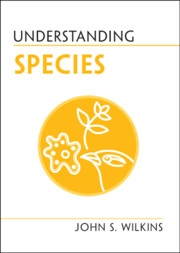‘The species problem is a vexing and important one, and John Wilkins has done more than anyone else to dig into its history and integrate it with philosophy past and present. Thus he was the perfect author for this book, which is a wonderful, accessible entryway to the diverse set of issues bearing on why species have been such a ‘thing’ for 2000 years. My own conclusion is to follow Darwin and acknowledge the species rank is a meaningless human construct - the full tree of life is what matters, not just the single level within it arbitrarily called species. But to decide whether to agree with me or not, you need to absorb the content in this book.’
Brent D. Mishler - author of What, if Anything, are Species?, Distinguished Professor of Integrative Biology, University of California, Berkeley
‘The species problem is one of the most complex issues in evolutionary biology and philosophy of biology, and not many would have succeeded in producing a comprehensive overview of it and doing justice to both science and philosophy. Written by one of the most eminent scholars in the field, Understanding Species is an informative and, due to the author’s eloquent writing style, at the same time also very entertaining read. It both quenches your thirst for knowledge and makes you want to dive deeper into the topic. What more can you ask of a book? Highly recommended!’
Frank E. Zachos - Natural History Museum Vienna, Austria, author of Species Concepts in Biology (2016)
‘A species is like jazz: you know one when you meet it, but on closer inspection it’s very hard to define. In this engaging book, John Wilkins guides us deftly through the philosophical minefield of what species are, how you recognise them, and how trying to find definitions for species is increasingly important for science and conservation.’
Henry Gee - author of A (Very) Short History of Life on Earth
‘This book is a stunning achievement, and I think nobody other than Wilkins could have tied together the disparate perspectives needed to write it. Species problems are notoriously thorny and multi-disciplinary, yet Wilkins manages to shine great light on them. Most impressively he does this in ways that many people, rather than just species experts, can understand, engage, and enjoy. The writing is snappy, the choice of topics smart, and the rewards for readers will be many.’
Matthew J. Barker - Associate Professor of Philosophy, Concordia University, Montréal
‘… based on helpful figures and explanatory tables and above all Wilkins’ charming and folksy style of writing, [the book] offers a successful introduction about species to a very wide audience, which despite the confines of a shorter book covers a diversity of topics and explains them well.’
Ingo Brigandt
Source: Metascience



